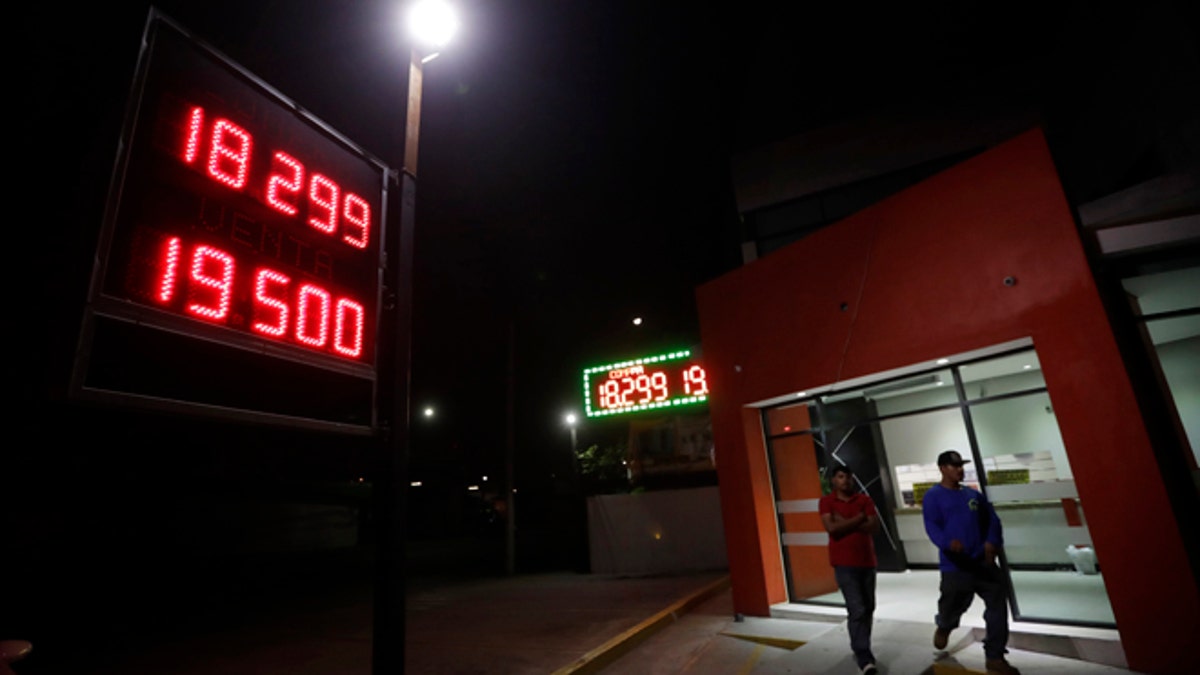
A currency exchange business displays rates of the Mexican peso Tuesday, Nov. 8, 2016, in Tijuana, Mexico. (ap)
NEW YORK (AP) – Global investors are seriously worried about Mexico.
The election of Donald Trump as the next president of the United States has caused investors to bet heavily against Mexico, its currency and Mexican companies. They worry that Trump's plans to build a wall along the border, throw out undocumented immigrants and renegotiate trade agreements will damage the country's economy.
The peso fell 8 percent Wednesday to roughly 20 pesos to the dollar, its lowest value against the dollar in history. In comparison, the peso traded at roughly 13.50 pesos to the dollar two years ago, well before Trump announced his candidacy. The stock market in Mexico fell more than 2 percent.
Trump's threats to repeal or renegotiate the North American Free Trade Agreement, as he has said repeatedly on the campaign trail, are real and so is the potential damage to Mexico's economy. The United States is Mexico's largest trading partner and NAFTA makes up the backbone of that commerce. Exports from Mexico into the U.S. have risen more than six-fold since 1993 under NAFTA, according to a 2015 report from the Congressional Research Service.
It has also had impacts like allowing Mexican farmers more unrestricted access to U.S. markets for their agricultural goods, like corn.
Trump has promised to redo trade agreements and slap tariffs on cars manufactured in Mexico. While Ford Motor Co. was Trump's campaign punching bag for moving production to Mexico, most major automakers and parts suppliers have factories there due to lower labor costs. In fact, Mexico was the leading supplier of automotive products to the U.S. in 2014, according to the CRS.
It's unclear whether they now will have to rethink their strategies. It's partly why automakers got hit hard on Wednesday from the news of Trump's victory. General Motors, Toyota and Fiat Chrysler shares all fell roughly 2 percent. Ford shares rose 1 percent on unrelated news, and had been down earlier in the day.
Not only would U.S.-Mexico trade be affected under a Trump presidency, but if his rhetoric holds regarding deporting the millions of workers who are in the U.S. without legal permission, that could also have a negative impact to Mexico's economy.
Mexicans living abroad, most of them in the U.S., send a lot of money each year back home to support families. Last year $24.8 billion in remittances were sent to Mexico. That money is a direct infusion of cash into the Mexican economy, used to buy goods and services. If those workers must return from the U.S., that money will no longer be entering Mexican families' pocketbooks.
"What are those people going to do? They will have to find a way to survive on this side," said Reyes Isidro, a barista in Mexico City.
